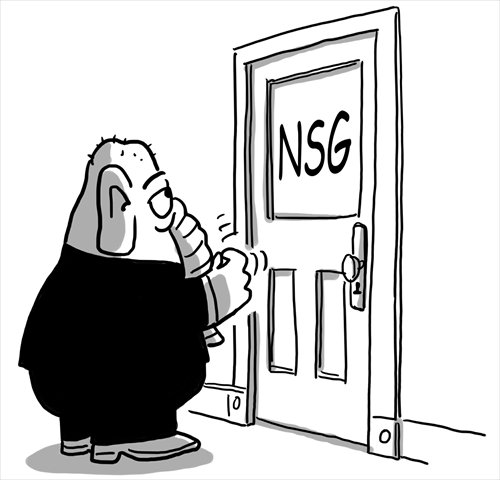Beijing could support India’s NSG accession path if it plays by rules

Illustration: Liu Rui /GT
New Delhi seems to have inched closer to the Nuclear Suppliers Group (NSG) membership after Indian Prime Minister Narendra Modi gained backing from the US, Swiss and Mexico in its bid to join the elite nuclear club earlier this month.
Becoming a member of the NSG, a 48-nation bloc that governs civilian nuclear trade worldwide, will grant India global acceptance as a legitimate nuclear power. If it joins the group, New Delhi will be able to import civilian nuclear technology and fuels from the international market more conveniently, while saving its domestic nuclear materials for military use.
The major goal for India's NSG ambition is to obtain an edge over Islamabad in nuclear capabilities. Once New Delhi gets the membership first, the nuclear balance between India and Pakistan will be broken. As a result, Pakistan's strategic interests will be threatened, which will in turn shake the strategic balance in South Asia, and even cast a cloud over peace and stability in the entire Asia-Pacific region.
The reason why India has scored a big win in garnering support for its NSG membership from some countries is because Washington has started to treat New Delhi as part of the US alliance.
It was only several years ago that Modi could not even get a US visa, but now he has visited the US more often than any other country during his two years in office.
The US recognized New Delhi as a "major defense partner" during Modi's recent visit. It means that the White House has given India the treatment as a US military ally. Over the years, the US has been bending the rules to back India's nuclear projects. Against the backdrop of Washington's accelerated pace of promoting its pivot to the Asia-Pacific region, it will be highly likely to keep supporting New Delhi's nuclear ambitions, in order to make it a stronger power to contain China.
The attitude of the US has had and will undoubtedly have an impact on some other nations. For those countries which also wish to put a finger in the pie of India's market, many of them begin to back India's NSG membership, or at least not oppose it.
However, as a country that has signed neither the Treaty on the Non-Proliferation of Nuclear Weapons (NPT) nor the Comprehensive Nuclear-Test-Ban Treaty (CTBT), India is not yet qualified for accession into the NSG. That's why the bloc is still divided over the case, and countries including New Zealand, Ireland, Turkey, South Africa and Austria have expressed their firm objections to India's membership.
As a crucial defender of the international system against nuclear proliferation, China does not wish to see the political and legal foundation of global nuclear security to be challenged by any party who does not abide by rules.
For those countries that are developing nuclear technology without the acceptance of the international community, perhaps counting them into the non-proliferation mechanism will better safeguard nuclear security.
Yet before that, a fair and just principle must be made through common consensus of all current members of the NSG, rather than US and India's reckless pushing at the cost of rule-breaking.
So far, all NSG members have signed the NPT. So the question is, if any non-signatory of the treaty wants to join the group, under what condition can it be accepted? If such a standard is to be made one day, then it will be possible for both India and Pakistan to become part of the group.
Beijing welcomes New Delhi playing a role as a major power in global governance, including producing positive effect in a nuclear non-proliferation organization. As long as all NSG members reach a consensus over how a non-NPT member could join the NSG, and India promises to comply with stipulations over the non-proliferation of nuclear weapons while sticking to its policy of independence and self-reliance, China could support New Delhi's path toward the club.
The author is a research fellow with the China Institutes of Contemporary International Relations. opinion@globaltimes.com.cn Follow us on Twitter @GTopinion